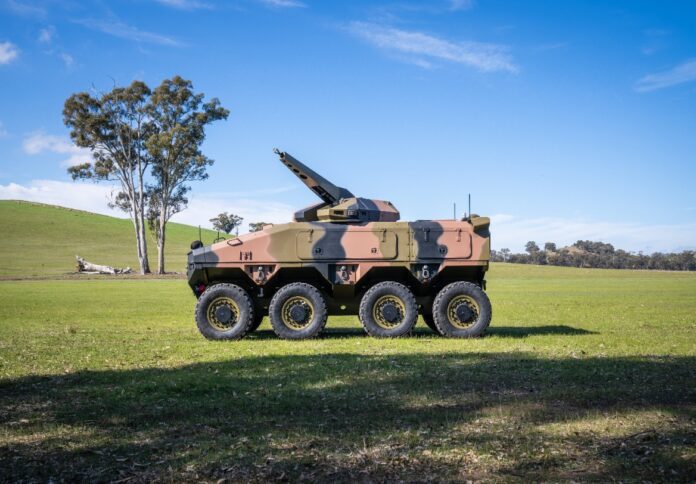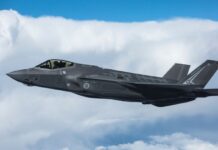
BAE Systems Australia has introduced a state-of-the-art uncrewed ground vehicle (UGV) designed to enhance military operations while minimising risks to soldiers.
The Autonomous Tactical Light Armour System (ATLAS) Collaborative Combat Variant (CCV) was unveiled today, offering a modular, cost-effective 8×8 UGV platform for tactical missions, BAE said in a media release.
Developed using BAE Systems’ expertise in autonomous technologies and armoured vehicles, in collaboration with industry partners, the ATLAS CCV is poised to play a significant role in future battlefields.
The vehicle is equipped to operate autonomously both on and off-road, working alongside traditional infantry fighting vehicles and main battle tanks at a reduced cost.
“We’ve developed the ATLAS vehicle to give soldiers the advantage on the modern battlefield. This has resulted in an autonomous platform that will deliver the dull, dirty, and dangerous tasks expected in a combat environment,” stated Andrew Gresham, managing director of Defence Delivery at BAE Systems Australia.
The company also highlighted that the ATLAS CCV can execute tasks such as obstacle avoidance, route planning, and tactical decision-making, powered by its advanced autonomy system.
Gresham added, “ATLAS will enable the Australian Army to be fit to fight in the littoral environment. It will help the soldier outpace, out-manoeuvre and out-think conventional and unconventional threats.”
The vehicle features the VANTAGE ATSTM, a lightweight and affordable medium-calibre turret system designed for uncrewed platforms.
This turret operates with a ‘human-in-the-loop’ targeting system, ensuring critical decisions remain under human control.
ATLAS CCV is also designed for easy transportation, capable of fitting into a standard 20-foot ISO container or flat rack, and providing a logistics multiplier effect that extends the endurance of companion vehicles in service.
BAE Systems collaborated with partners including Supacat (UK/Australia), Valhalla Turrets (Slovenia), and Marand (Victoria) to develop this next-generation platform, which is the first UGV of its kind to be built in Australia.



















